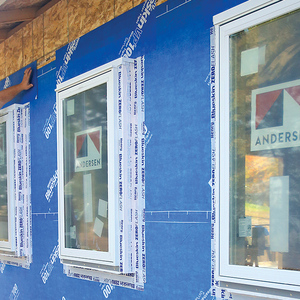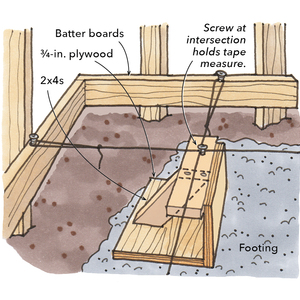I am wiring my basement and will have a bathroom. I have a 20 amp circuit (12-2 wiring) that goes to a sump pump, utility room and bath. I plan on using 3 GFCI outlets allowing power to the bath with its separate GFCI so that the bath is isolated from the other GFCI outlets. Will this meet code, NEC 2008? Thanks.
Discussion Forum
Discussion Forum
Up Next
Video Shorts
Featured Story

Look closely at these common locations for hazardous materials in older homes.
Featured Video
Video: Build a Fireplace, Brick by BrickHighlights
"I have learned so much thanks to the searchable articles on the FHB website. I can confidently say that I expect to be a life-long subscriber." - M.K.
Fine Homebuilding Magazine
- Home Group
- Antique Trader
- Arts & Crafts Homes
- Bank Note Reporter
- Cabin Life
- Cuisine at Home
- Fine Gardening
- Fine Woodworking
- Green Building Advisor
- Garden Gate
- Horticulture
- Keep Craft Alive
- Log Home Living
- Military Trader/Vehicles
- Numismatic News
- Numismaster
- Old Cars Weekly
- Old House Journal
- Period Homes
- Popular Woodworking
- Script
- ShopNotes
- Sports Collectors Digest
- Threads
- Timber Home Living
- Traditional Building
- Woodsmith
- World Coin News
- Writer's Digest


















Replies
Nothing wrong with having multiple GFCIs on a circuit. However, the rules have changed a lot in the past 20 years, and there may be a rule that would prevent having the bath and sump pump on the same circuit.
2008 NEC requires the bath to have its own 20 amp circuit.
Can't be shared with utility room or sump pump.
Lights, exhaust fans, GFCIs and other equipment in the bath can be on that 20 amp circuit, but nothing else.
Of course, depending on the circumstances the OP's situation might be considered "grandfathered".
Thanks!
I'll go with a separate circuit. I appreciate your help.
New Bathroom?
From the OPs description, this sounds like he is creating a bathroom and finishing the basement.
Nothing would be 'grandfathered' under the NEC if that is the case.
However, only the OP's AHJ will have the correct answer for him. So he really needs to talk to him.
In my state, no permits or inspections would be required for this work since residential alterations and repairs to existing dwellings are excluded from compliance with our State Building Code. <shrugs>
Strictly speaking for the 2008 NEC, however, a bathroom must have its own 20 amp circuit with only equipment related to the bathroom allowed on it.
>>>Strictly speaking for the
>>>Strictly speaking for the 2008 NEC, however, a bathroom must have its own 20 amp circuit with only equipment related to the bathroom allowed on it.
Which makes perfect sense given that hair dryers, heaters, and other high current devices get used in bathrooms, if not by the current owners then by future ones. I've never understood why some people like to skimp on these sorts of "common sense" rules.